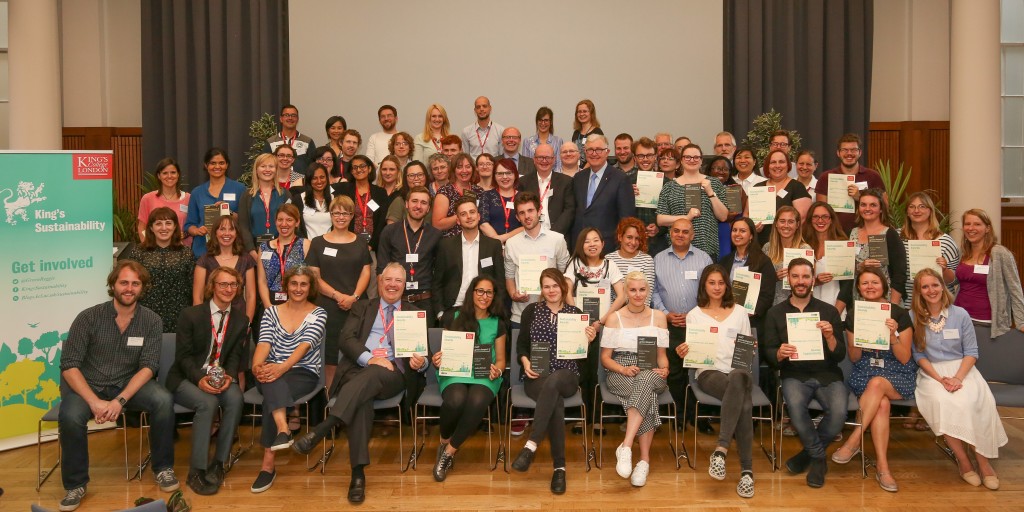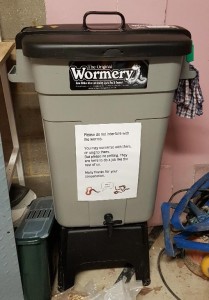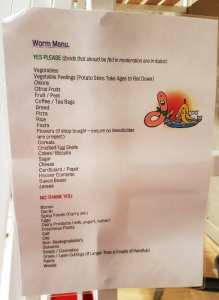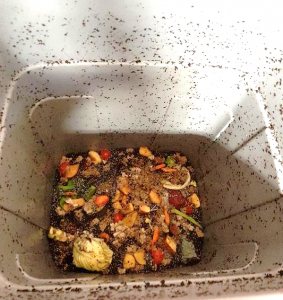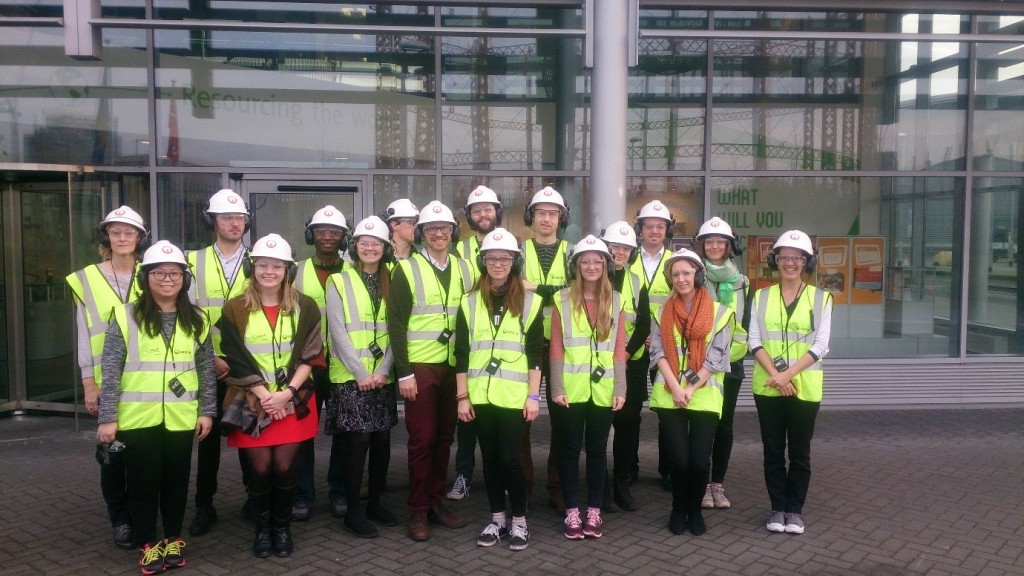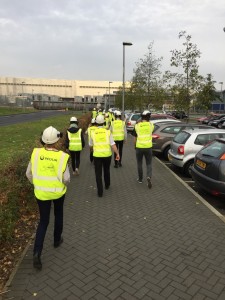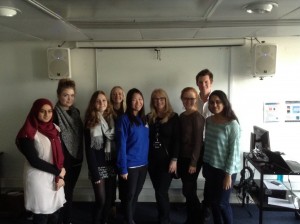On the 3rd July, the annual King’s Sustainability Awards took place at Strand Campus.
Professor Ed Byrne, President & Principal of King’s College London, opened the awards by highlighting how important sustainability at all levels is to King’s.
His full speech is now available on our Youtube Channel:
Transcript:
“Thank you Kat Thorne, Tytus, the team, and thank you to all of you who have been involved in this amazingly important work over the last year. You will all have seen Vision 2029, hopefully more than once by now, and […] empathise with the tagline of 2029, ‘To make the world a better place’. And of course, there is no more important way to do that than around the incredibly important agenda of sustainability […], arguably the most important single area the human race needs to do better in.
So, thank you to you all. To our students, to our Champions, and many of you are in the audience. To those supporting them, and to those for whom it is part of their job role: our cleaners, our security, our engineering staff. We are here to celebrate a year of achievement by everyone, and this is an area where individual actions tell the whole story. Individual actions by a large community such as ours add up to make a real difference.
So, what does sustainability mean to King’s, what does it mean to me? It’s so important that everyone in the university buys into this agenda. It’s at all levels – if one believes in levels at a university. It’s bottom-up, it’s top-down, it’s in departments, it’s in professional staff, it’s in academic staff, it’s in our student body; we all have to show commitment in this area. Sustainability is one of the core foundations of Vision 2029, and is integrated throughout this vision, it comes up time and time again. We have a duty, a responsibility, to support and deliver, in a number of domains, against the 17 UN Sustainable Development Goals. This applies to our research, our education, and to how we run our business, our university operations, I know many of you in this audience who are involved in this area.
As we know, this is important for people of all ages, but it is particularly important to our students. And I think it’s not just because they are young people and are likely to be around for longer and see what happens to the planet over the next 50 years. But it’s because young people have a passion to preserve the environment. We all do, but there’s no doubt it’s developed deeply and strongly in our youth, in this country and around the world. 89% of King’s students, in a recent survey, stated that sustainable development is something universities should actively incorporate in their missions and promote. Our students, in their activities and running societies, in acting as volunteers in so many different areas, in working with the local communities, make a difference around the sustainability agenda. This is incredibly important to our students’ careers and employability, the opportunity to have careers in sustainability, the opportunity to take part in events which are supported by our alumni who are sharing their experiences with our students. So I want to thank our students and our graduates who have worked with the team over the past year, and good fortune to them in the future. Let’s acknowledge them now [applause].
We have to get better at this all the time, there is no room for complacency. But I think we are working to constantly improve the way in which we make sure our students leave this university with the skills and knowledge necessary to be agents of change, and to be able to make a difference in promoting a sustainable world.
Let me turn to research a little more. There are umpteen examples of colleagues working around King’s to address global grand challenges under sustainability theme. I could mention dozens of examples, but I’m just going to mention two or three. The Global Consortium for Sustainable Outcomes (GCSO), where in one project we are carrying out a living lab project in our own buildings to reduce the carbon footprint and the use of hot water – something simple, but complex. And I must mention the PLuS Alliance, because it has been a sort of baby of mine to get this under way. Combining the strengths of three leading research universities on three continents, all with significant activities around the sustainability agenda – Arizona State University (ASU) in Phoenix, King’s in London, and University of New South Wales in Sydney, Australia – and focusing many of our colleagues in those universities to work together around the global grand challenges in health, social justice, sustainability, technology and innovation. This is hugely important. We’ve seen great momentum since the launch of PluS last year, we’ve appointed over 100 PLuS fellows working across the three institutions, and the sustainability agenda is the dominant agenda to date – we have 11 research projects with seed funding.
Now, let me move on to another of the key domains which I alluded to briefly: our operations as an institution, because we have to live the dream, we have to do our bit and be an example to others. Sustainability Champions have a crucial role to play in reducing the negative impact of our operations. The Champions know their area best, they can identify positive actions and work with their colleagues to make a real difference in their area. And we have this in spades.
Much of the work we’re going to hear a little bit about is focused on reducing the environmental impact of our research in labs, while also improving the research environment. A laboratory consumes up to 5 times more energy than a typical academic space, therefore actions of Lab Sustainability Champions can have a big impact. We were highly commended at last year’s Green Gown Awards, a major award, for our Sustainability Lab programme. And it’s really great to have worked closely with a university I was a little connected with, UCL, and to have Champions working across King’s and UCL, auditing each other and sharing good practice across these institutions.
I am also delighted to announce that this year our colleagues across Estates & Facilities and the sports grounds have been externally audited, and last month they were accredited in a major programme: the ISO14001 programme, an internationally recognised standard for environmental management. Can you join me in saying well done to everybody who played a role in that achievement [applause].
This year, we’ve had some incredibly engaged colleagues right across the university, truly making a difference in their workplaces. We look forward to celebrating with them shortly, as we celebrate their awards.
Finally, for the next year, this has been an increasingly powerful story at King’s over the last three years. I have no doubt that the coming year will be no different. I am sure that we will perform against our agreed objectives in our Sustainability Charter. One thing I intend to do is report regularly to Council about that now, because we have some momentum around that and I think it has reached that stage. I was reading a university I worked at for many years in Australia, the University of Melbourne, is recycling their office equipment, and they have made and saved a bit of money in this highly sustainable agenda. I was delighted to see on our notice boards that we have saved £40,000 just by recycling office furniture at King’s, which is a phenomenal achievement and exactly the sort of initiative we need to continue.
In my own contribution over the next year, I am going to ensure that as we launch the new King’s Business School as the next Faculty at King’s, sustainable development and educating business people for the future in triple line reporting and in sustainable development will be a key theme of our school, that I want it to become renowned for throughout the world. That again will be a big step forward for King’s.
In summary, it has been a terrific year. Thank you to you all for the contributions you have made, it’s all about you, about what you do and what you achieve. And I think next year, we will continue on this upward curve. Thank you all.”



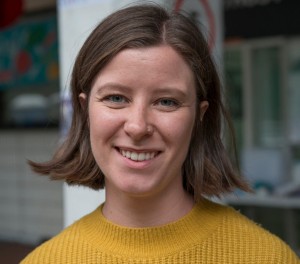 the King’s Sustainability Team as their new Sustainability Projects Assistant. The passion and drive in the team to make King’s as sustainable as possible is palpable, and I am excited to be part of a university that is dedicated to embedding the ethos of sustainability across all of its practices.
the King’s Sustainability Team as their new Sustainability Projects Assistant. The passion and drive in the team to make King’s as sustainable as possible is palpable, and I am excited to be part of a university that is dedicated to embedding the ethos of sustainability across all of its practices.